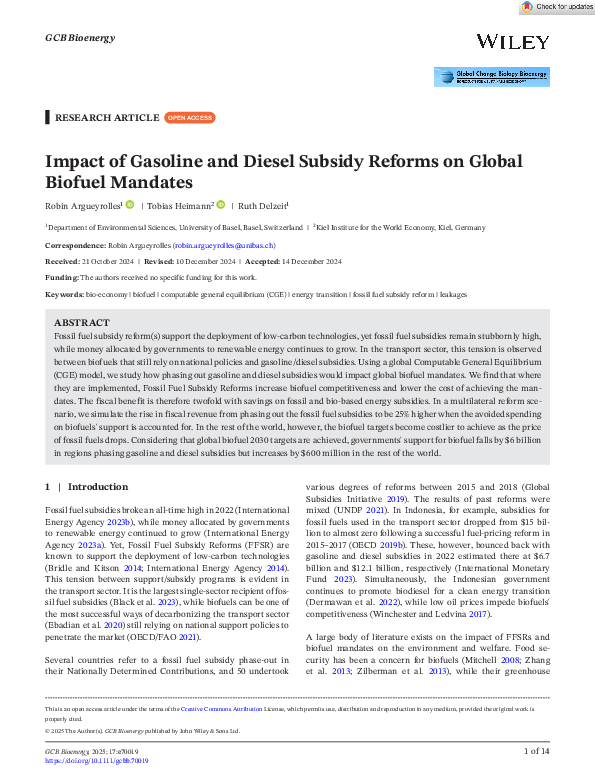Journal Article
Impact of Gasoline and Diesel Subsidy Reforms on Global Biofuel Mandates
Fossil fuel subsidy reform(s) support the deployment of low-carbon technologies, yet fossil fuel subsidies remain stubbornly high, while money allocated by governments to renewable energy continues to grow. In the transport sector, this tension is observed between biofuels that still rely on national policies and gasoline/diesel subsidies. Using a global Computable General Equilibrium (CGE) model, we study how phasing out gasoline and diesel subsidies would impact global biofuel mandates. We find that where they are implemented, Fossil Fuel Subsidy Reforms increase biofuel competitiveness and lower the cost of achieving the mandates. The fiscal benefit is therefore twofold with savings on fossil and bio-based energy subsidies. In a multilateral reform scenario, we simulate the rise in fiscal revenue from phasing out the fossil fuel subsidies to be 25% higher when the avoided spending on biofuels' support is accounted for. In the rest of the world, however, the biofuel targets become costlier to achieve as the price of fossil fuels drops. Considering that global biofuel 2030 targets are achieved, governments' support for biofuel falls by $6 billion in regions phasing gasoline and diesel subsidies but increases by $600 million in the rest of the world.




